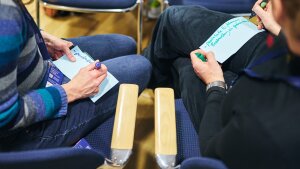Service
What services does the 'Gender in Focus' project offer?


When considering 'dimensions of sex and gender', many researchers may initially think of a balanced and gender-equitable composition of research teams. While this is a very important concern, these dimensions go far beyond. In particular, the question of the relevance of sex and gender can play an important and even decisive role in the development of research projects - from the hypotheses that guide the research to the research design and the practical use of research results. In this introductory video, you will learn from examples what the relevance of sex and gender in research can be.
This video was produced by the Genderové informační centrum NORA, o.p.s. as part of the project "Prevention of Gender-Based Violence in Work Environment of Czech Public Research Institutions and Universities", funded by Norway Grants. https://www.gendernora.cz/en/
Video: Gendernora, Czech RepublicThe project ‘Gender in Focus - Establishing sustainable structures for the systematic consideration of sex and gender aspects in research at the Friedrich Schiller University Jena’ is funded by the Federal Ministry of Research, Technology and Space (BMFTR) under the funding code 01FP23G11. Within the framework of the directive 'Gender Aspects in Focus'External link the project ist funded for five years (2024-2029).
Room D322
Bachstraße 18k
07743 Jena

Room D322
Bachstraße 18k
07743 Jena

Room D322
Bachstr. 18k
07745 Jena
Google Maps site planExternal link